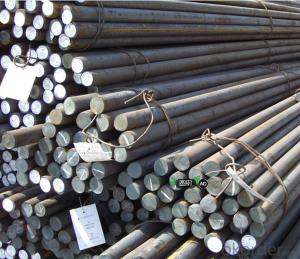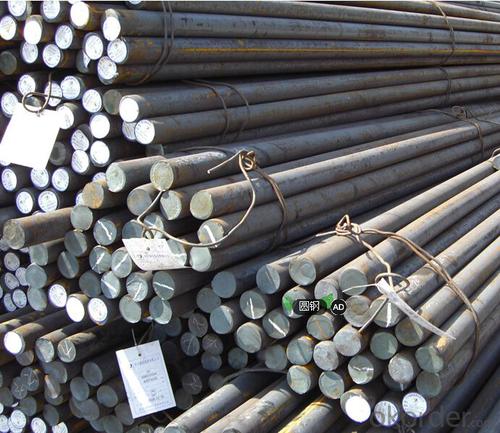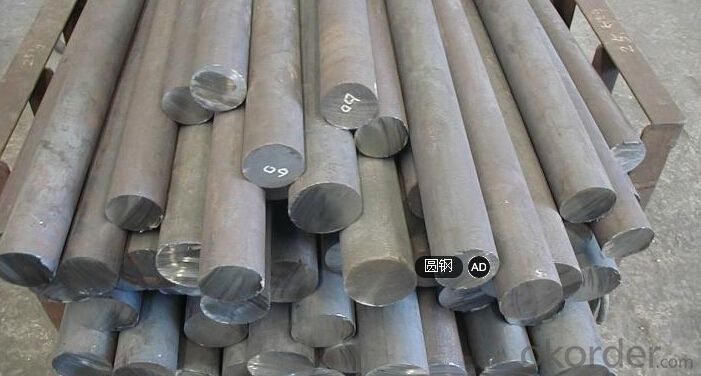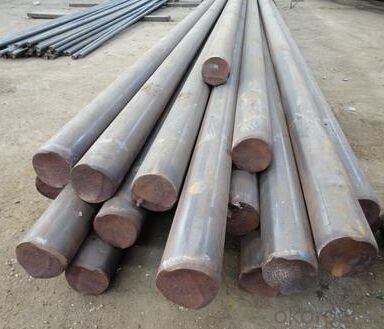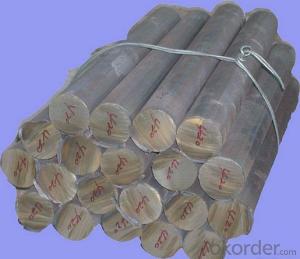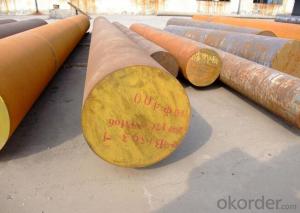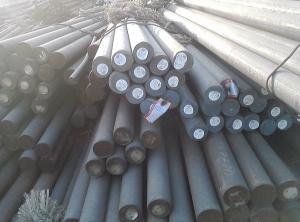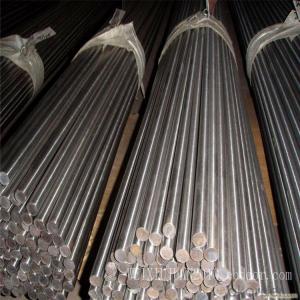Forged DIN 25CrMO4 30CrMo Alloy Steel Bar
- Loading Port:
- Qingdao
- Payment Terms:
- TT OR LC
- Min Order Qty:
- 5 m.t.
- Supply Capability:
- 100000 m.t./month
OKorder Service Pledge
Quality Product, Order Online Tracking, Timely Delivery
OKorder Financial Service
Credit Rating, Credit Services, Credit Purchasing
You Might Also Like
Specification
Type:
Carbon Steel,Spring Steel,Bearing Steel,Gear Steel,Deformed Steel,Stainless Steel,Alloy Steel
Shape:
Steel Coil,Steel Sheet,Steel Wire Rod,Steel Flat Bar,Steel Square Bar,Steel Angle,Steel Round Bar,Steel Billets
Technique:
Hot Rolled,Cold Rolled,Cold Drawn,ERW,Forged,Saw,Extruded,EFW,Spring
Surface Treatment:
Galvanized,Coated,Copper Coated,Color Coated,Oiled,Dry,Chromed Passivation,Polished,Bright,Black,PVDF Coated
Certification:
ISO,SGS,BV,IBR,RoHS,CE,API,BSI,UL
Thickness:
12-500mm
Width:
12-500mm
Length:
6-12m
Outer Diameter:
12-500mm
Net Weight:
100kg
Packaging:
seaworthy packaging
Forged DIN 25CrMO4 30CrMo Alloy Steel Bar
Detailed Information of Forged DIN 25CrMO4 30CrMo Alloy Steel Bar
| Name | Steel Round Bar |
| Shape | Round Bar/Square Bar/Flat Bar/Plate/Wire |
| Standard | GB/ASTM/SAE/AISI/DIN/JIS/EN/BS |
| Surface Treatment: | Black/Peeling/Polished/Machined |
| Delivery Condition: | Hot Rolled or Forged/Peeled or Black Surface |
| Test | SGS/UT 100% Elements Testing |
| Certificate: | ISO/Mill Certificate |
| Service: | 24 hours online service / |
| more than 20 years trading and manufacture | |
| Quality Assurance: | the third party inspection, such as SGS, BV, TUV…etc. is acceptable |
| Packaging Details: | Seaworthy Packaging or as per customer's packing instruction |
Product Overviews of Forged DIN 25CrMO4 30CrMo Alloy Steel Bar
| Product Name | Typical Grades | Diameter(mm) | Standard Adopted |
| Carbon Steel | 20 (1020/S20C/C22) | ||
| 40 (1040/S40C/C40) | Ø16-Ø300 | ||
| 45 (1045/S45C/C45) | |||
| Bearing Steel | GCr9 (51100/SUJ1) | ||
| GCr15 (52100/SUJ2/100Gr6) | Ø12-Ø250 | ||
| GCr9SiMn (A485-Gr.1/SUJ3) | GB/SAE/ | ||
| Cr-Mo Steel | 20Cr (5120/SCr420H/20Cr4) | JIS/DIN | |
| 40Cr (5140/SCr440/41Cr4) | Ø12-Ø250 | ||
| 42CrMo(4140/SCM440/42CrMo4) | |||
| Gear Steel | 20CrNiMo | ||
| 20CrMn(5115/SMnC420/20MnCr5) | Ø16-Ø600 | ||
| 20CrNiMo(8620/SNCM220/20CrMiMo2) |
Company Introduction of Forged DIN 25CrMO4 30CrMo Alloy Steel Bar
CNBM International Corporation is the most import and export platform of CNBM group(China National Building Material Group Corporation) ,which is a state-owned enterprise, ranked in 270th of Fortune Global 500 in 2015.
With its advantages, CNBM International are mainly concentrate on Cement, Glass, Iron and Steel, Ceramics industries and devotes herself for supplying high quality series of refractories as well as technical consultancies and logistics solution.
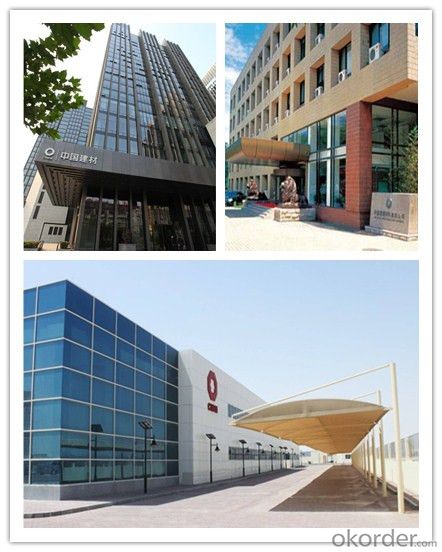
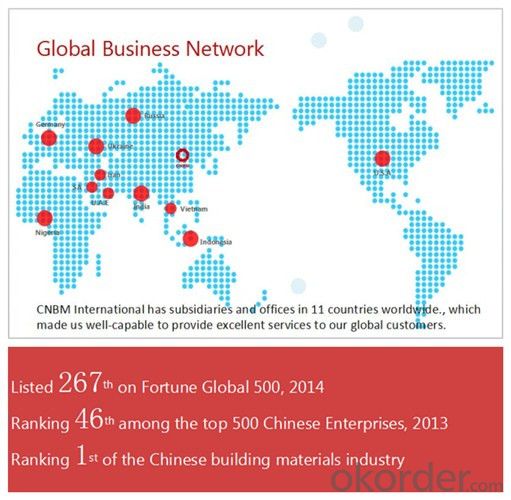
| After-sale service | l CNBM provides the services and support you need for every step of our cooperation. We’re the business partners you can trust; you can relax and get on with doing business. |
| l For any problem, please kindly contact us at any your convenient time, we’ll reply you in our first priority within 24 hours | |
| Advantages | l Industry experience over 20 years. |
| l Shipment of goods -More than 70 countries worldwide. | |
| l The most convenient transport and prompt delivery. | |
| l Competitive price with best service. | |
| l High technical production line with top quality products. | |
| l High reputation based on best quality products. | |
Packaging & Delivery of Forged DIN 25CrMO4 30CrMo Alloy Steel Bar
| Packaging Detail | Sea worthy packing /as per customer's packing instruction |
| Delivery Detail | 15 ~ 40 days after receiving the deposit |
Products Show
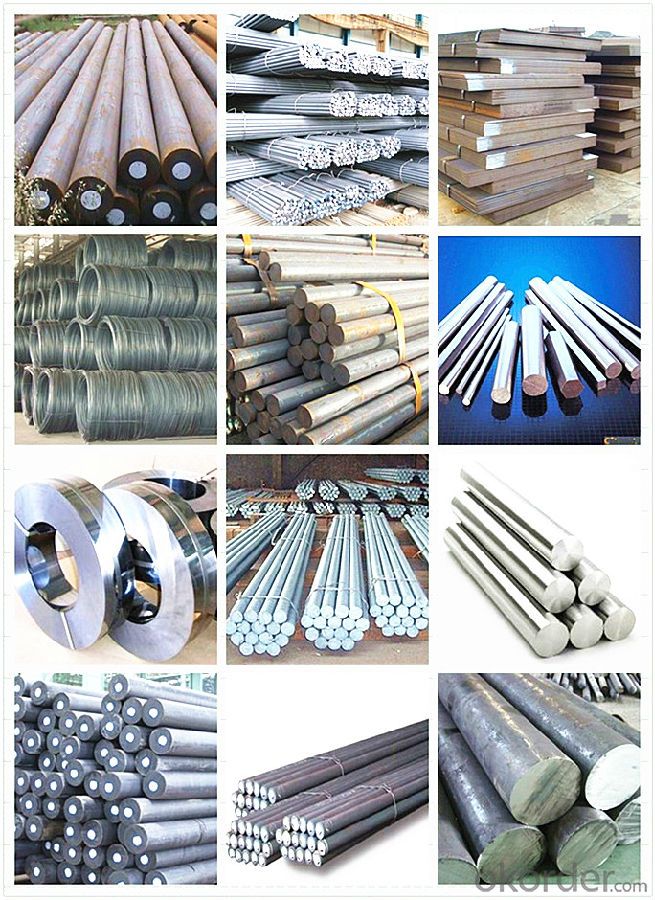
FAQ:
| Are you a trading company or manufacturer? | Manufacturer |
| What’s the MOQ? | 1000m2 |
| What’s your delivery time? | 15-20 days after downpayment received |
| Do you Accept OEM service? | Yes |
| what’s your delivery terms? | FOB/CFR/CIF |
| What's the Payment Terms? | 30% as deposit,70% before shipment by T/T |
| Western Union acceptable for small amount. | |
| L/C acceptable for large amount. | |
| Scrow ,Paybal,Alipay are also ok | |
| Why choose us? | Chose happens because of quality, then price, We can give you both. Additionally, we can also offer professional products inquiry, products knowledge train (for agents), smooth goods delivery, excellent customer solution proposals. |
| What's your available port of Shipment? | Main Port, China |
| What’s your featured services? | Our service formula: good quality+ good price+ good service=customer's trust |
| Where are your Market? | Covering more than 160 countries in the world |
- Q: What are the different surface finishing methods used for special steel?
- There are several surface finishing methods used for special steel, including electroplating, powder coating, anodizing, painting, and passivation. These methods are employed to enhance the appearance, corrosion resistance, durability, and overall performance of the steel.
- Q: How does special steel contribute to the medical aftermarket industry?
- The medical aftermarket industry heavily relies on special steel, which is essential for producing top-quality materials needed for medical devices and equipment. Special steel, also known as stainless steel, offers a wide range of advantages that make it perfect for medical applications. Above all, special steel's resistance to corrosion and rust is of utmost importance in the medical field, where hygiene and cleanliness are crucial. Medical devices like surgical instruments, implants, and equipment require frequent sterilization, and the corrosion resistance of special steel guarantees their durability and long-lasting nature. Moreover, special steel possesses exceptional strength and hardness properties, making it suitable for medical implants and prosthetics. These implants must be able to withstand the stresses and strains of the human body while maintaining their structural integrity. Special steel provides the necessary strength and toughness required for these critical applications. Furthermore, special steel is biocompatible, meaning it does not cause any negative reactions or toxicity when it comes into contact with living tissues. This characteristic is vital for implants and devices that directly interact with the human body, as it minimizes the risk of rejection or allergic reactions. Additionally, special steel's versatility allows for easy machining and fabrication into complex shapes and sizes, meeting the diverse requirements of medical applications. It can be shaped into delicate surgical instruments, precise cutting tools, and even large-scale equipment like hospital beds and imaging machines. The high precision and dimensional stability of special steel contribute to the accuracy and reliability of medical devices, especially in areas like diagnostics and imaging. Precise measurements and high-quality images are essential for accurate diagnosis and treatment planning, and special steel helps achieve these goals. In conclusion, special steel's corrosion resistance, strength, biocompatibility, and versatility make it an invaluable material in the medical aftermarket industry. Its use in manufacturing medical devices and equipment ensures the highest standards of hygiene, durability, and performance, ultimately contributing to the advancement of healthcare and improving patient outcomes.
- Q: What is the impact of grain size on the mechanical properties of special steel?
- The mechanical properties of special steel are significantly affected by the size of its grains. Grain size refers to the dimensions and arrangement of individual crystals within the steel structure. It is determined by various factors, including the speed at which the steel solidifies and subsequent heat treatments. In general, smaller grain sizes in special steel result in improved mechanical properties. This is because smaller grains provide more grain boundaries, which act as obstacles to the movement of dislocations and enhance the steel's strength. Smaller grains also contribute to a more uniform microstructure, enhancing overall toughness and resistance to fracture. Furthermore, smaller grain sizes promote higher hardness and increased resistance to wear in special steel. This is because the greater number of grain boundaries impedes dislocation movement, preventing plastic deformation and resulting in higher hardness values. Conversely, larger grain sizes can have a detrimental effect on the mechanical properties of special steel. Larger grains have fewer grain boundaries, allowing dislocations to move more freely. As a result, the strength, toughness, and hardness of the steel are diminished. Additionally, larger grains can lead to anisotropic behavior, where the mechanical properties vary in different crystallographic directions. This makes the steel more vulnerable to failure under specific loading conditions. Therefore, it is crucial to control and optimize the grain size in special steel to achieve the desired mechanical properties. This can be accomplished through precise heat treatments, such as annealing or quenching, which regulate the cooling rate and subsequent recrystallization processes. By controlling the grain size, special steel can be tailored to meet specific application requirements, ensuring optimal mechanical performance and reliability.
- Q: What are the unique properties of stainless steel?
- Stainless steel possesses several unique properties that set it apart from other metals. Firstly, it is highly corrosion resistant, making it ideal for applications in environments with high moisture or chemical exposure. Secondly, stainless steel has excellent strength and durability, allowing it to withstand extreme temperatures and heavy loads. Additionally, it is hygienic and easy to clean, making it popular in industries such as food processing and medical equipment. Lastly, stainless steel is aesthetically pleasing, with a shiny and polished appearance that can be maintained over time.
- Q: How is alloy steel used in the production of gears and shafts?
- Alloy steel is commonly used in the production of gears and shafts due to its excellent combination of strength, durability, and resistance to wear and corrosion. The alloying elements such as manganese, chromium, nickel, and molybdenum enhance the properties of the steel, making it suitable for high-stress applications. The use of alloy steel in gears and shafts ensures their ability to withstand heavy loads, transmit power efficiently, and maintain dimensional stability under extreme operating conditions, thus increasing the overall lifespan and performance of the components.
- Q: How does spring steel maintain its elasticity?
- Spring steel maintains its elasticity due to its unique composition and heat treatment process. It is made from a high carbon steel alloy, which provides it with exceptional strength and flexibility. Additionally, spring steel undergoes a specific heat treatment called quenching and tempering. During this process, the steel is heated to a high temperature and then rapidly cooled, which creates a hardened structure. This hardened structure allows spring steel to withstand repeated bending and twisting without permanently deforming. Overall, the combination of high carbon content and heat treatment enables spring steel to maintain its elasticity and resilience.
- Q: How does special steel contribute to the oil and gas equipment industry?
- Special steel plays a crucial role in the oil and gas equipment industry as it offers exceptional strength, corrosion resistance, and durability. It is used in the manufacturing of various critical components such as pipes, valves, fittings, and offshore platforms. Special steel's high heat resistance and ability to withstand extreme pressure and harsh environments make it an ideal choice for oil and gas equipment, ensuring reliability and safety in operations.
- Q: What are the different methods for joining special steel components?
- There are several methods for joining special steel components, each with its own advantages and limitations. Some of the common methods include: 1. Welding: This is one of the most widely used methods for joining steel components. It involves melting the edges of the components and fusing them together. Welding can be done using various techniques such as arc welding, gas welding, or laser welding, depending on the specific requirements of the project. 2. Bolting: Bolting involves using bolts, nuts, and washers to join steel components together. This method is preferred for applications where disassembly or maintenance may be required. It provides a strong and reliable connection but may not be suitable for high-stress applications. 3. Riveting: Riveting involves using metal fasteners called rivets to join steel components together. This method is commonly used in applications where high strength and resistance to vibration are required. Riveting is a permanent joining method that provides a strong and durable connection. 4. Adhesive bonding: Adhesive bonding involves using high-strength adhesives to join steel components together. This method is preferred for applications where aesthetics and weight reduction are important. Adhesive bonding can provide a strong and durable connection, but the surface preparation and adhesive selection are critical for ensuring the bond's strength. 5. Mechanical fastening: Mechanical fastening methods, such as using screws or clips, can also be used to join special steel components. This method is often used for temporary connections or for components that need to be easily assembled and disassembled. Each joining method has its own advantages and considerations, and the choice of method depends on factors such as the specific application, load requirements, lifespan expectations, cost considerations, and the nature of the steel components being joined. It is important to carefully evaluate these factors and consult with experts to determine the most suitable joining method for a given project.
- Q: What are the applications of special steel in the manufacturing industry?
- Special steel has a wide range of applications in the manufacturing industry, including the production of machinery, tools, and equipment. It is commonly used in automotive manufacturing, aerospace engineering, and construction projects. Special steel's high strength, durability, and resistance to corrosion make it suitable for critical components requiring reliability and longevity. Additionally, its ability to withstand extreme temperatures and pressure makes it an ideal material for manufacturing specialized parts in various industries.
- Q: How does special steel contribute to the manufacturing of precision instruments?
- Special steel plays a crucial role in the manufacturing of precision instruments. Its unique characteristics and properties make it an ideal material choice for these applications. Firstly, special steel offers exceptional strength and durability, allowing precision instruments to withstand extreme conditions, heavy loads, and repetitive use. This ensures the longevity and reliability of these instruments, which is vital in critical industries such as aerospace, automotive, and medical. Moreover, special steel has excellent corrosion resistance, preventing the instruments from deteriorating over time. This is especially important for precision instruments that are exposed to various elements, chemicals, or moisture during their operation or storage. Special steel also provides high thermal stability, enabling precision instruments to maintain their accuracy in different temperature environments. This is vital for instruments that are used in industries where temperature fluctuations can affect their performance, such as laboratories or manufacturing plants. Additionally, special steel can be customized and tailored to meet specific design requirements. It can be easily machined, formed, or welded into intricate shapes and parts, allowing manufacturers to create precision instruments with complex geometries and tight tolerances. This level of precision is crucial for instruments used in fields like metrology, microscopy, or nanotechnology. Furthermore, special steel offers excellent magnetic properties, which can be advantageous for precision instruments that rely on magnetic fields for their operation. This includes instruments like magnetic resonance imaging (MRI) machines, compasses, or magnetometers. In conclusion, special steel contributes significantly to the manufacturing of precision instruments by providing strength, durability, corrosion resistance, thermal stability, customization options, and magnetic properties. These characteristics ensure the performance, accuracy, and longevity of precision instruments, making them indispensable in various industries.
Send your message to us
Forged DIN 25CrMO4 30CrMo Alloy Steel Bar
- Loading Port:
- Qingdao
- Payment Terms:
- TT OR LC
- Min Order Qty:
- 5 m.t.
- Supply Capability:
- 100000 m.t./month
OKorder Service Pledge
Quality Product, Order Online Tracking, Timely Delivery
OKorder Financial Service
Credit Rating, Credit Services, Credit Purchasing
Similar products
Hot products
Hot Searches
Related keywords
